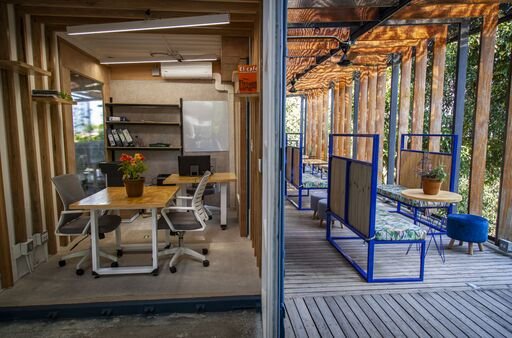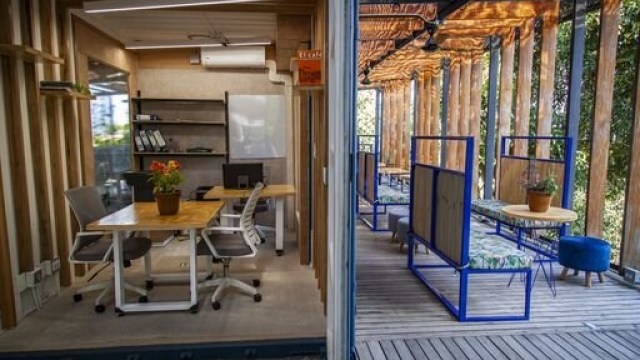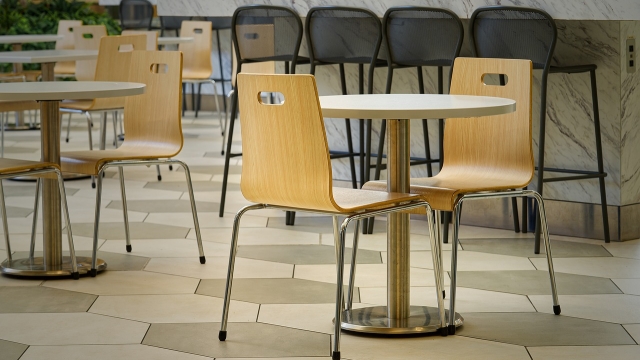The Future of Work: Exploring the Rise of Coworking Spaces
In today’s rapidly changing work landscape, traditional office setups are becoming a thing of the past. With the rise of remote work, freelance gigs, and entrepreneurship, a new way of working has emerged – coworking. Coworking spaces have been cropping up all over the world, providing a flexible and collaborative environment for professionals from various industries.
One city that has embraced this trend is Medellin. With its vibrant entrepreneurial scene and innovative spirit, Medellin has become a hub for coworking. These shared workspaces offer a unique blend of productivity and community, attracting not only freelancers and startups but also established businesses looking for a more dynamic and cost-effective alternative to traditional offices.
Coworking spaces in Medellin provide more than just a desk and Wi-Fi. They foster an atmosphere of collaboration, where professionals from different backgrounds come together to exchange ideas, share resources, and form connections. The benefits extend beyond the office walls, as members of coworking spaces often find themselves immersed in a supportive community that nurtures creativity and drives success.
The rise of coworking spaces is undoubtedly shaping the future of work. As more individuals and companies embrace this flexible and collaborative approach, traditional office structures are being challenged. Coworking not only offers cost savings and increased productivity but also facilitates networking and skill-sharing opportunities that can accelerate professional growth. Whether you’re a freelancer, a startup founder, or an established business, the allure of coworking in Medellin and beyond is hard to resist.
Benefits of Coworking Spaces
Coworking spaces offer numerous benefits to individuals and businesses alike. Whether you’re a freelancer, entrepreneur, or part of a small team, here are some advantages of working in a coworking space:
Collaboration and Networking Opportunities: One of the key benefits of coworking spaces is the opportunity to collaborate and network with like-minded individuals. Working alongside professionals from diverse backgrounds and industries can spark creativity and innovation. You may find yourself gaining valuable insights and ideas by simply engaging in conversations over a cup of coffee or during community events.
Increased Productivity: Coworking spaces provide a productive work environment that can boost your focus and efficiency. These spaces are designed to eliminate common distractions found in traditional offices, such as excessive noise or interruptions. The professional atmosphere, combined with dedicated work areas, can help you stay motivated and accomplish your tasks effectively.
Flexibility and Cost-Effectiveness: Coworking spaces offer flexible membership options, allowing you to choose a plan that suits your needs. Whether you require a dedicated desk, a private office, or simply access to common areas, coworking spaces can provide the flexibility you need. Additionally, coworking spaces often come fully-equipped with amenities like high-speed internet, meeting rooms, and communal areas. This eliminates the need to invest in expensive office equipment and allows you to optimize your budget.
In summary, coworking spaces provide a host of benefits including collaboration and networking opportunities, increased productivity, and flexibility. With these advantages, it’s no wonder that coworking has gained popularity, especially in cities like Medellin.
Impact on Traditional Office Environments
Coworking Medellin
With the rise of coworking spaces, traditional office environments are experiencing a significant impact. The advent of coworking has revolutionized the way people think about workspaces, bringing about a shift in the dynamics of traditional office structures.
Firstly, coworking spaces offer a more flexible and collaborative working environment compared to traditional offices. In a coworking space, individuals from different companies and industries come together to work, fostering a sense of community and promoting networking opportunities. This collaborative atmosphere encourages knowledge sharing, innovation, and cross-pollination of ideas, which are often lacking in traditional office settings.
Secondly, coworking spaces provide professionals with the option to have a more personalized and customized work experience. Unlike traditional offices with fixed layouts and designs, coworking spaces offer a variety of workspaces and amenities to cater to different preferences and needs. Whether one prefers a quiet corner for deep focus or a lively communal area for team collaboration, coworking spaces provide the flexibility to choose and change work environments as desired.
Lastly, coworking spaces challenge the traditional concept of a centralized office location. Traditional offices are typically located in central business districts, requiring employees to commute long distances. Coworking spaces, on the other hand, are often scattered throughout various neighborhoods, bringing workspaces closer to where people live. This decentralization reduces travel time, eases commuting stress, and contributes to a healthier work-life balance.
As coworking continues to gain popularity, traditional office environments are reevaluating their approaches to workspace design, flexibility, and community-building. The impact of coworking has spurred a shift towards more dynamic, flexible, and inclusive workspaces, ultimately benefiting both individuals and organizations in the evolving world of work.
The Future of Coworking
Coworking has emerged as a dynamic and innovative solution in the modern workplace landscape. As the way we work continues to evolve, the future of coworking appears bright, with exciting opportunities and trends on the horizon.
Firstly, coworking spaces offer flexibility and agility, allowing individuals and businesses to adapt to changing needs with ease. The demand for more flexible options in the workplace is growing rapidly, and coworking provides a perfect solution. With its shared amenities, collaborative environment, and diverse community, coworking spaces foster creativity and productivity, creating an ideal setting for freelancers, startups, and even larger enterprises.
Secondly, the rise of technology and digital advancements have greatly impacted coworking spaces and will continue to do so in the future. With the increasing prevalence of remote work and the need for connectivity, coworking spaces are becoming even more vital. These spaces not only provide high-speed internet and state-of-the-art technology infrastructure but also offer a supportive ecosystem for innovation and collaboration.

Lastly, the global trend towards sustainability and environmental consciousness bodes well for the future of coworking. Coworking spaces, by nature, promote resource sharing and minimize wastage. With an emphasis on energy efficiency, recycling programs, and eco-friendly practices, coworking spaces contribute to a greener and more sustainable future.
As we look ahead, the future of coworking seems promising. The combination of flexibility, technological advancements, and sustainability aligns perfectly with the changing dynamics of the modern work environment. Coworking spaces are poised to play a key role in the future of work, providing individuals and businesses with the means to thrive in an ever-evolving professional landscape.



